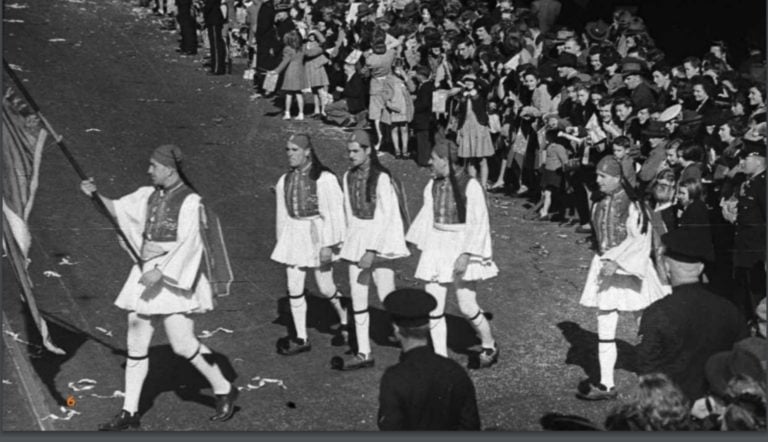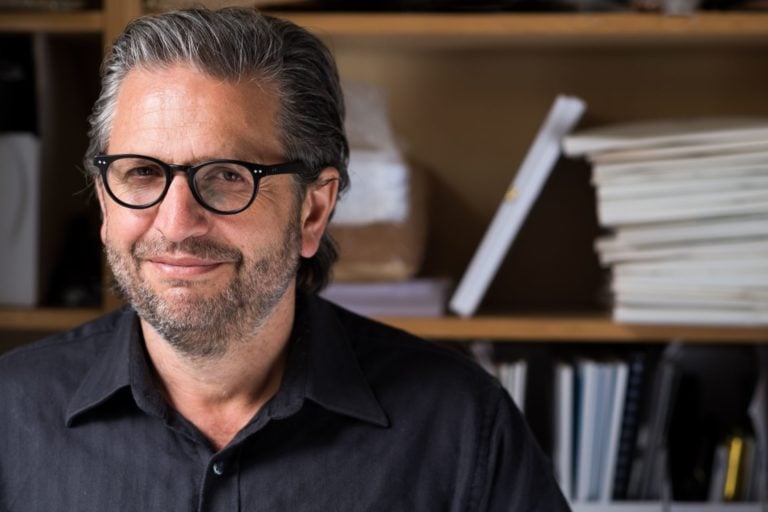The Greek Australian Archive, the first of its kind, which comprises official documents, photographs, films, oral histories and letters and was launched at the State Library of NSW earlier this month.
It is the brainchild of Associate Professor Doumanis from the School of Humanities and Languages in the Faculty of Arts and Social Sciences at the UNSW. He is a second generation Greek Australian, as well as an international prize winning historian who has spent most of his working life on Greek and Greek Australian History.
He told Neos Kosmos that he was delighted to be launching the project, after conceiving the idea four years ago.
“This archive is significant for Australian history to consider the success of the multicultural project, that it is a success,” he said.
“We are a stable affluent country where every wave of migrants has been integrated into a very successful nation. So these materials definitely speak to all that and shows how the Greeks found their way into it.”
He says that while most migrants were expected to assimilate, very few of the Greeks said ‘okay’ and instead kept their culture. But at the same time, they did become Australian, participated in the community and have developed a love for the country and defend it.
In conducting the interviews with pre-war and post-war migrants, Assoc. Prof. Doumanis reveals that he felt an obligation to the subjects as their stories will represent the Greek Australian experience for years to come.
“We have already done a lot of interviews with elderly Greeks and we have done it in a methodical way,” he said.
“The whole idea of the archive is to keep these things in perpetuity. What I found is there is no typical Greek migrant life. Yes they all worked hard, and had difficult lives; nobody had an easy ride. All of them had heart wrenching moments, but sometimes they do things which you don’t expect. There is a lot of variety within each life story. As a historian it confirms they are human, that they are all individuals and they all had ambitions.”
Having the Greek Australian experience archived at an institution like the State Library means that current and future generations will have the chance to learn about the complex nature of what life was like as a migrant, he explains.
“It certainly is not a rosy coloured romantic story,” said the Assoc. Prof.
“The people I interviewed, all of them left heartbroken from Greece. Cutting off ties with Greece was heartbreaking. Settling here was heartbreaking. But while they had tough stories they all have the energy of young people … they were all young and in their 20’s when they came here. They were free but they had to work in a difficult, obscure place. It’s very hard to understand, but they managed it. ”
In the future, the Greek Australian archive will expand to have an online presence, as well as a published version.
“We are aiming to create a good educational website,” Assoc. Prof. Doumanis said.
“A lot of the interviews that we filmed will be stored on there, as well as stories about Greek Australian sports heroes. The other aspect about the archive is that it’s ongoing and will take a few more years to complete,” he adds, and invites members of the community to participate.
“I have had prominent Greek Australians from radio, journalism and other fields who have been banging on my door wanting to be part of this and contribute. Associate Professor George Kouvaras and I are also hoping to publish a book to bring a lot of the work together.”
READ MORE: Greek immigrants and their fascinating tales at BMW

‘When they got to Australia, Greek women threw away their scarves.’
Through the archive, Mr Doumanis discovered interesting narratives about the female experience. Many Hellenic women upon migrated in the ‘50s and ‘60s forged a new identity.
They quickly became middle class and the first thing to go was traditional clothing, especially the head scarf.
“They weren’t just homebodies doing the traditional role of the Greek woman. They are actually pushed out of the house because they need to make money and they worked in factories and also mixed with customers on the shop floor of their businesses,” he explains.
In addition, aside from their work with the Church, he says that many were out engaging with the wider Australian community, getting involved with theatre and philanthropy.
Meanwhile, with entertainment opportunities being limited in the 1950’s, he says that in addition to women, families as a whole were very active in ‘silogi’ (community groups) and would often go on picnics as large groups.
“There is no TV or bad TV; that’s one thing we forget about the ‘50s and ‘60s – there is nothing really chaining down people at home … so they are trying to get out of the house. They are also going to balls, they are going to concerts, they are going to the movies and watching Greek movies at the Enmore Theatre [in Sydney] for example. They also make friendships out of the house with their neighbours and people at work.”
With many first generation immigrants having sadly passed away, the historian says that it is more important than ever to keep these oral histories alive for future generations.
READ MORE: How Greek women came to Australia as brides
“We will have 200 interviews – 100 men and 100 women. We want a fair representation of gender and regional background. So we are going to get a nice breakdown of different parts of Greece, as well as Greeks from Egypt and Russia,” he explains.
“We are spending a lot of money when we do the recordings of the interviews to make sure that the archive will have state of the art quality and it meets the specifications of the State Library because we want it there forever.”

